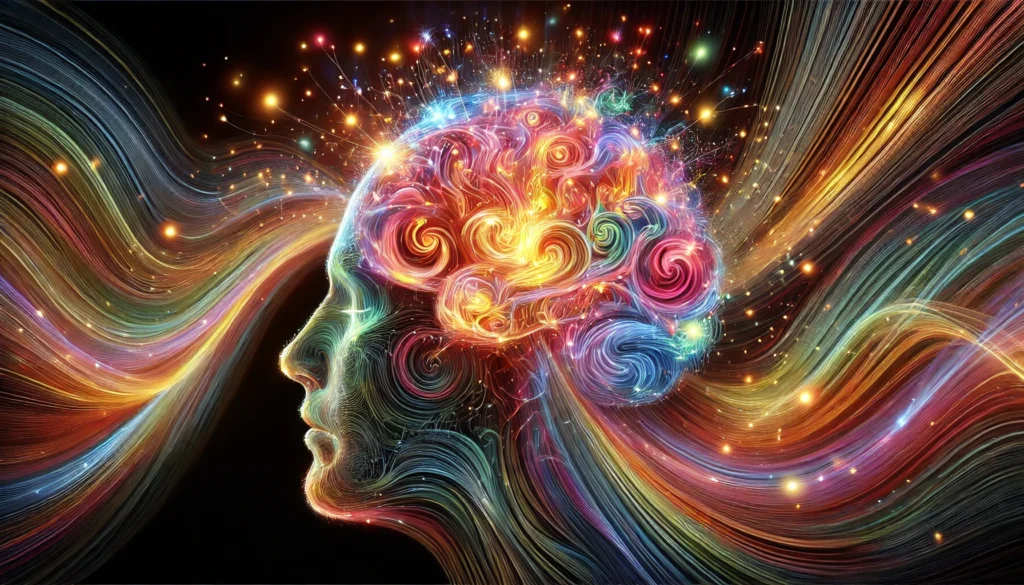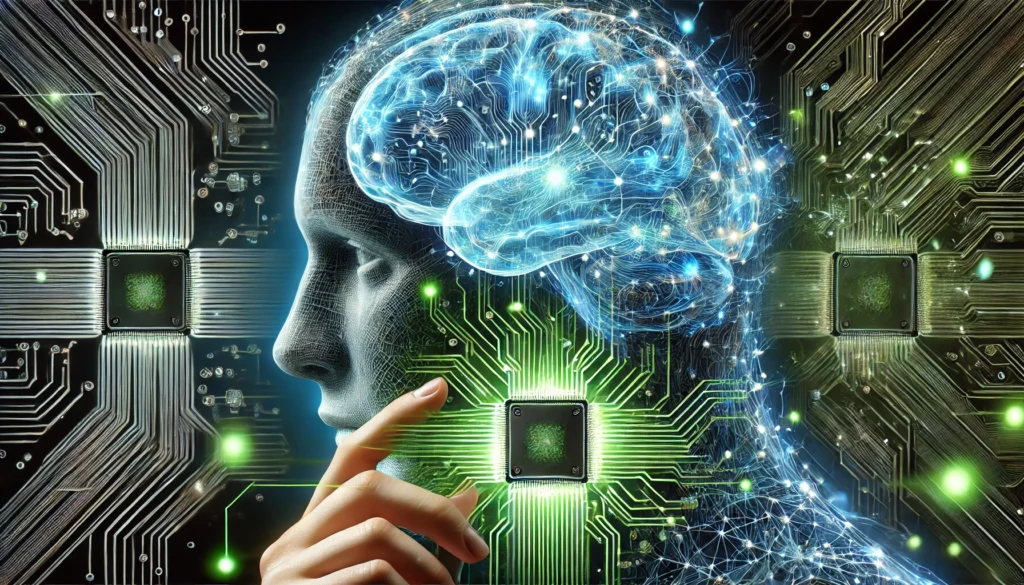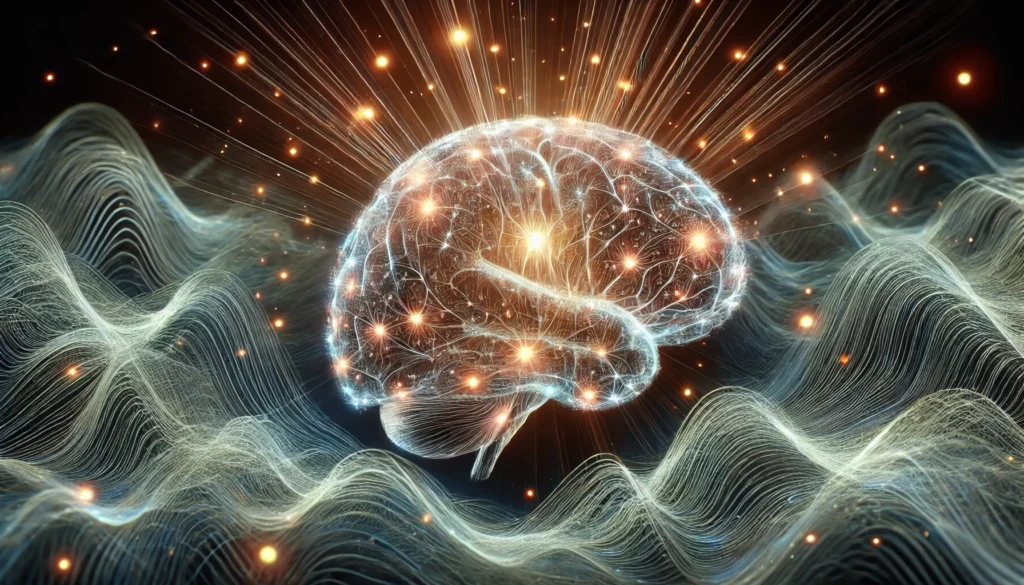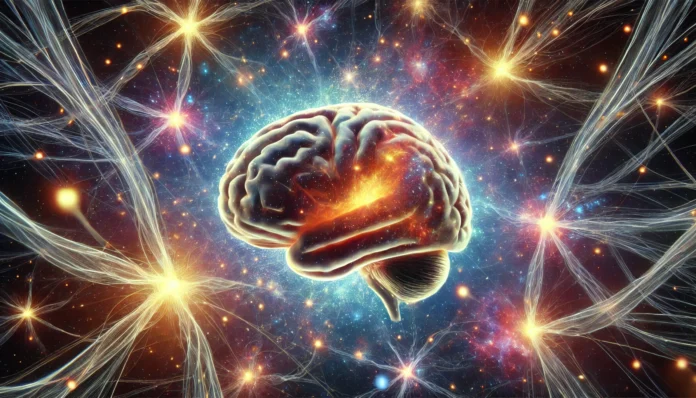The human brain has long been regarded as one of the most complex and enigmatic structures in existence. Scientists have made remarkable strides in understanding its functions, yet many mysteries remain. How much do we really know about the brain? This question continues to drive cognitive scientists, neuroscientists, and psychologists toward groundbreaking discoveries. In recent years, advancements in technology and research methodologies have revolutionized our understanding of cognition, memory, consciousness, and neuroplasticity. This article explores the latest findings in cognitive science and what they reveal about the inner workings of the human mind.
You may also like : Best Things for Brain Health: Expert-Backed Strategies to Keep Your Mind Sharp
The Evolution of Brain Research: From Ancient Theories to Modern Neuroscience
The study of the brain has evolved from rudimentary philosophical speculations to sophisticated scientific inquiries. In ancient times, civilizations such as the Egyptians and Greeks debated whether the brain or the heart was the center of thought and emotion. Theories from thinkers like Hippocrates and Aristotle laid early foundations for neuroscience, though many were later proven inaccurate. It was not until the Renaissance and Enlightenment periods that scholars began to explore the brain using more empirical methods.
The 19th and 20th centuries brought groundbreaking discoveries, including the identification of neurons by Santiago Ramón y Cajal and the concept of the synapse by Charles Sherrington. Later, technologies such as electroencephalography (EEG) and magnetic resonance imaging (MRI) enabled researchers to observe brain activity in real time. These advancements paved the way for cognitive science as an interdisciplinary field, integrating psychology, linguistics, artificial intelligence, and neuroscience to understand human cognition and behavior.
Neuroplasticity: The Brain’s Remarkable Ability to Adapt and Rewire
One of the most revolutionary findings in cognitive science is the concept of neuroplasticity. For much of history, scientists believed that the adult brain was static, with little capacity for change after a certain age. However, research has shown that the brain continuously reorganizes itself in response to learning, injury, and environmental stimuli. This adaptability is crucial for memory formation, skill acquisition, and recovery from brain damage.
Studies on stroke patients have demonstrated how the brain can compensate for lost functions by rerouting neural connections. Similarly, individuals who lose a sense, such as vision or hearing, often experience heightened abilities in their remaining senses due to cortical reorganization. This research has profound implications for rehabilitation therapy, education, and even artificial intelligence, as scientists explore ways to replicate neuroplasticity in machine learning systems.
The Enigma of Consciousness: Unlocking the Mystery of Self-Awareness
Consciousness remains one of the most profound and debated topics in cognitive science. Despite extensive research, there is no universally accepted definition or explanation for how subjective experiences arise from neural activity. Neuroscientists have identified specific brain regions, such as the prefrontal cortex and the thalamus, that play critical roles in awareness and decision-making. However, the fundamental nature of consciousness remains elusive.
One promising area of study involves the Global Workspace Theory, which suggests that consciousness emerges from the integration of information across multiple brain networks. Another approach, the Integrated Information Theory, proposes that consciousness arises from the brain’s ability to generate complex, interconnected patterns of activity. While these theories offer insights, they are still far from providing a definitive answer. Understanding consciousness has far-reaching implications for artificial intelligence, ethics, and even the treatment of disorders such as coma and locked-in syndrome.

Memory and Learning: How the Brain Stores and Retrieves Information
Memory is a fundamental aspect of cognition, allowing individuals to retain knowledge and experiences. Research has identified different types of memory, including short-term, long-term, and procedural memory, each governed by distinct neural mechanisms. The hippocampus, amygdala, and prefrontal cortex play crucial roles in encoding and retrieving information.
Recent discoveries have highlighted the role of synaptic plasticity in memory formation. The strengthening and weakening of synaptic connections, known as long-term potentiation (LTP) and long-term depression (LTD), respectively, are essential for learning. Advances in optogenetics, a technique that uses light to manipulate neurons, have enabled scientists to activate and erase specific memories in animal models. These findings raise ethical questions about the potential for memory modification in humans and its implications for conditions such as PTSD and Alzheimer’s disease.
The Brain-Gut Connection: How the Microbiome Influences Cognition
An emerging field of research has uncovered a surprising connection between gut health and brain function. The gut microbiome, composed of trillions of bacteria, plays a crucial role in regulating mood, cognition, and overall mental health. Studies have shown that gut bacteria produce neurotransmitters such as serotonin and dopamine, which influence brain activity.
Dysregulation of the gut microbiome has been linked to conditions such as anxiety, depression, and neurodegenerative diseases. Researchers are exploring the potential of probiotics and dietary interventions to improve mental health by modulating gut bacteria. This field holds promise for novel therapeutic approaches that go beyond traditional psychiatric medications.
The Future of Brain Research: What Lies Ahead?
As technology continues to advance, the future of brain research looks promising. Innovations in artificial intelligence, brain-computer interfaces, and neuroimaging techniques are expected to provide deeper insights into cognition and consciousness. Scientists are also exploring the potential of neural implants to enhance memory, treat neurological disorders, and even enable direct brain-to-brain communication.
Despite these advancements, many questions remain unanswered. How much do we really know about the brain? The complexity of the human mind ensures that research will continue for generations to come. As scientists unravel more of its secrets, the implications for medicine, psychology, and technology will be profound.

Frequently Asked Questions (FAQ) About the Brain and Cognitive Science
1. How much do we really know about the brain?
Despite centuries of research, scientists are still unraveling the brain’s complexities. Advances in neuroimaging and artificial intelligence have allowed researchers to map neural pathways and understand cognitive processes better than ever before. However, many questions remain unanswered, particularly concerning consciousness, memory formation, and the full extent of neuroplasticity. How much do we know about the brain? While we have identified the roles of various brain regions and neurotransmitters, the intricate interactions between them remain an area of active exploration. With each discovery, we realize how much we still have to learn about this remarkable organ.
2. Can the brain repair itself after an injury?
The brain really has an incredible ability to heal, thanks to neuroplasticity. When an area of the brain is damaged, nearby neurons may take over some lost functions, allowing partial recovery. Rehabilitation techniques such as cognitive therapy, physical therapy, and brain stimulation can enhance this process. Some scientists are exploring stem cell therapy and neurogenesis, the birth of new neurons, as potential treatments for brain injuries. The extent of recovery depends on the severity of the damage and the individual’s ability to adapt through targeted interventions.
3. How does stress affect brain function?
Chronic stress alters the brain in profound ways, affecting memory, decision-making, and emotional regulation. The hippocampus, which is critical for memory formation, shrinks under prolonged stress, leading to difficulties in learning and recall. Additionally, the amygdala, responsible for emotional responses, becomes hyperactive, increasing anxiety levels. Neurotransmitter imbalances caused by stress can also contribute to conditions such as depression and cognitive decline. While the brain really demonstrates resilience, managing stress through mindfulness, exercise, and proper sleep is crucial for long-term cognitive health.
4. What role does sleep play in brain function?
Sleep is essential for memory consolidation, emotional processing, and cognitive performance. During deep sleep, the brain clears out metabolic waste, including beta-amyloid plaques associated with Alzheimer’s disease. REM sleep is particularly crucial for problem-solving and creativity, as it strengthens neural connections. How much do we know about the brain’s relationship with sleep? Research indicates that sleep deprivation impairs cognitive function as severely as alcohol intoxication. Prioritizing sleep hygiene, such as maintaining a regular sleep schedule and minimizing screen exposure before bed, supports optimal brain function.
5. Can diet influence brain health?
The food we consume has a direct impact on cognitive function, mood, and neuroprotection. Omega-3 fatty acids found in fish, antioxidants from fruits and vegetables, and polyphenols in dark chocolate enhance brain performance. Conversely, diets high in processed sugars and trans fats contribute to inflammation and cognitive decline. The brain really thrives on proper nutrition, and emerging research suggests that dietary interventions could help prevent neurodegenerative diseases. How much do we know about the brain’s relationship with diet? Studies are ongoing, but evidence strongly supports the benefits of a balanced, nutrient-rich diet.
6. Is it possible to enhance intelligence and cognitive function?
While intelligence has a genetic component, cognitive abilities can be improved through lifelong learning, mental exercises, and physical activity. Activities such as learning new languages, playing musical instruments, and engaging in problem-solving tasks strengthen neural connections. The brain really benefits from consistent mental challenges, reinforcing the idea of “use it or lose it.” Additionally, mindfulness practices and adequate sleep enhance cognitive function. How much do we know about the brain’s capacity for intelligence enhancement? Research suggests that intelligence is not fixed, and adopting the right habits can significantly boost cognitive potential.
7. How do emotions influence decision-making?
Emotions play a crucial role in shaping our choices, often operating on a subconscious level. The brain’s limbic system, particularly the amygdala and prefrontal cortex, integrates emotions into decision-making processes. While rational thinking occurs in the prefrontal cortex, emotions provide context and motivation, sometimes leading to impulsive choices. The brain really relies on emotional cues to assess risks and rewards, a phenomenon that can be beneficial or detrimental. How much do we know about the brain’s emotional decision-making process? Studies show that emotions are indispensable for forming judgments, and their influence can be moderated through mindfulness and critical thinking.
8. What is the connection between the gut and the brain?
The gut-brain axis is an emerging field of study revealing how gut microbiota influence cognition, mood, and mental health. The brain really communicates with the gut through the vagus nerve, and disruptions in gut bacteria are linked to anxiety and depression. Certain probiotics and dietary changes can positively affect neurotransmitter production, improving cognitive function. How much do we know about the brain-gut connection? While the research is still evolving, scientists believe that optimizing gut health may enhance brain function and emotional well-being.
9. Can technology help us understand the brain better?
Advanced neuroimaging techniques, artificial intelligence, and brain-computer interfaces are revolutionizing our understanding of the brain. Functional MRI (fMRI) allows researchers to observe brain activity in real-time, while AI algorithms analyze complex neural patterns. The brain really is at the forefront of technological exploration, with emerging innovations such as neural implants potentially restoring lost cognitive functions. How much do we know about the brain’s interaction with technology? While significant strides have been made, many aspects of cognition and consciousness remain a mystery, motivating further interdisciplinary research.
10. What does the future of brain research look like?
The future of brain research lies in personalized medicine, AI-driven diagnostics, and deeper explorations into consciousness. Scientists are investigating ways to enhance memory, treat neurodegenerative diseases, and even enable brain-to-brain communication. The brain really holds untapped potential, and future advancements could lead to unprecedented medical and cognitive breakthroughs. How much do we know about the brain’s future capabilities? While we can predict some developments, the complexity of the brain ensures that new discoveries will continue to challenge and expand our understanding for years to come.

Conclusion: The Ongoing Quest to Understand the Brain
The human brain is a marvel of nature, capable of extraordinary feats of learning, adaptation, and self-awareness. While significant progress has been made in understanding its functions, many mysteries remain. Advances in cognitive science, neuroplasticity, consciousness research, and the brain-gut connection are reshaping our knowledge of how the brain operates. As researchers continue to explore its complexities, the future holds exciting possibilities for medical breakthroughs and technological innovations. The journey to fully comprehend the human brain is far from over, but with each new discovery, we move closer to unlocking its deepest secrets.
neuroscience discoveries, cognitive science research, brain plasticity, memory and learning, consciousness studies, neural pathways, cognitive enhancement techniques, brain health optimization, neurobiology insights, mental performance strategies, gut-brain connection, stress impact on cognition, sleep and brain function, emotional intelligence research, brain-computer interface, neurotechnology advancements, artificial intelligence in neuroscience, cognitive therapy methods, neurological rehabilitation, emerging brain science
Further Reading:
Perceiving the brain like never before
It Takes the World to Understand the Brain
Neuroscientists make strides towards deciphering the human
Disclaimer
The information contained in this article is provided for general informational purposes only and is not intended to serve as medical, legal, or professional advice. While Health11News strives to present accurate, up-to-date, and reliable content, no warranty or guarantee, expressed or implied, is made regarding the completeness, accuracy, or adequacy of the information provided. Readers are strongly advised to seek the guidance of a qualified healthcare provider or other relevant professionals before acting on any information contained in this article. Health11News, its authors, editors, and contributors expressly disclaim any liability for any damages, losses, or consequences arising directly or indirectly from the use, interpretation, or reliance on any information presented herein. The views and opinions expressed in this article are those of the author(s) and do not necessarily reflect the official policies or positions of Health11News.


